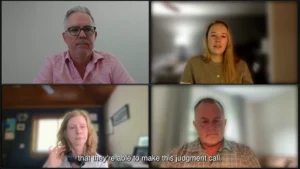Hand Care for Patients Affected by Spasticity
When there is damage to the portion of the brain or spinal cord that controls voluntary movement, it alters the signals between a patient’s nervous system and his or her muscles. These changes may result in a condition known as spasticity. With spasticity, certain muscles are continuously contracted, resulting in stiffness or tightness that interferes with normal movement, speech, and gait. Spasticity typically affects the muscles and joints in the extremities, making proper care and hygiene for affected hands vital to maintaining a patient’s well-being and comfort.
Spasticity is a Serious Problem for Millions
Spasticity affects approximately 12 million people across the globe.1 Approximately 4 out of every 5 people with cerebral palsy or multiple sclerosis experience varying degrees of spasticity.2 In addition, traumatic brain injury, spinal cord injury, and brain damage due to a lack of oxygen, as well as stroke, encephalitis, meningitis, and amyotrophic lateral sclerosis, or Lou Gehrig’s disease, may also lead to spasticity.3 Spasticity symptoms range from a feeling of tightness in muscles and joints, all the way up to painful, uncontrollable spasms of the extremities. The condition leads to muscle stiffness and fatigue and may cause movements to become less precise, making many daily tasks challenging to perform.
Hand Care is Essential to Combat Complications Due to Spasticity
Opening and cleaning the hand, cutting nails, and managing pressure areas are all essential, but become more problematic for caregivers if muscles are tight and short or if the patient is in pain. Therefore, it is necessary to take steps to relieve the symptoms of spasticity, reduce the pain and frequency of muscle contractions, and improve voluntary motor functions. Physical and occupational therapy for spasticity is designed to restore muscle tone, maintain or improve range of motion and mobility, increase strength and coordination, and improve comfort. Treatment may include stretching and strengthening exercises, temporary braces or casts, limb positioning, application of cold packs, electrical stimulation, and biofeedback. Below are some basic hand tips, which staff should adhere when conducting hand hygiene for patients 4:
Washing hands: Immerse in a basin of warm soapy water and/or use a hand wipe. The use of non-perfumed aqueous cream can help to lift any dried or dead skin.
Keeping nails short: Perform regular nail care and remember to check under the nails. Use a single-use nail file to keep the nails short and reduce the need for scissors. If using scissors do not cut down the sides or cut them too short.
Stretching the hand: Stretching should be done 2-3 times a day by slowly and gently opening the hand. Do not force the hand open and do not all it to be unopened for an extended period of time.
Some tools that can help include:
Hand Contracture Carrot—This unique product from AliMed, similar in appearance to a carrot, helps reduce flexor spasticity by positioning the patient’s fingers away from their palm. It also reduces excess moisture, relieves pressure, and prevents damage from fingernails, while making it easier for caregivers to wash the patient’s hands and apply hand splints. The carrot contains absorbent wool fleece and a cotton cover, meaning it can be easily cared for by washing in cold water and air drying.
AliMed® Palm Guard™ Splint—AliMed’s Palm Guard provides an alternative when patient’s contractures are too severe and unyielding for a traditional splint. Made from dense, waterproof foam and synthetic fleece, this machine washable product helps reduce the risk of fingernail puncture or other skin irritation due to involuntary motion.
FREEDOM® Palmar Swabs and Placement Wands—This combination permits pain-free, thorough cleaning of severely contracted hands. The fabric is pretreated with biocide to prevent pathogen growth, and the dark blue color makes debris, sloughed skin, and foreign matter easier to detect.
References
https://www.aans.org/Patients/Neurosurgical-Conditions-and-Treatments/Spasticity
https://www.aans.org/Patients/Neurosurgical-Conditions-and-Treatments/Spasticity
https://www.aans.org/Patients/Neurosurgical-Conditions-and-Treatments/Spasticity
https://www.aans.org/Patients/Neurosurgical-Conditions-and-Treatments/Spasticity








